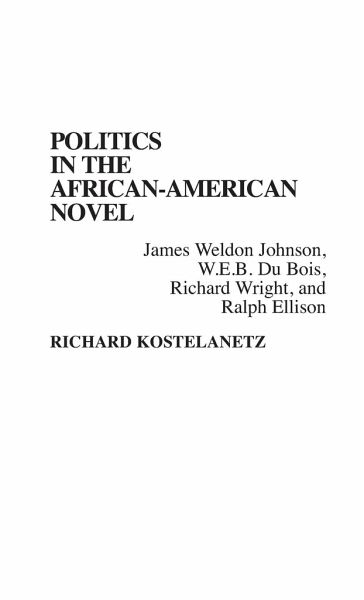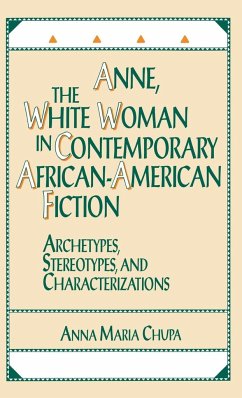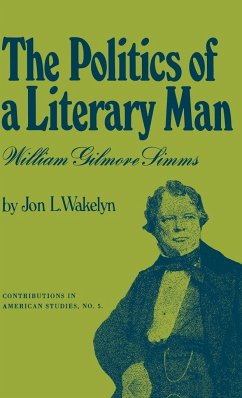
Politics in the African-American Novel
James Weldon Johnson, W.E.B. Du Bois, Richard Wright, and Ralph Ellison
Versandkostenfrei!
Versandfertig in 1-2 Wochen
70,99 €
inkl. MwSt.

PAYBACK Punkte
35 °P sammeln!
One of America's most distinguished independent artists/intellectuals, Richard Kostelanetz, has written a prescient volume that uses, as a starting point, the philosopher Robin Collingwood's notion that the historian and the novelist have much in common, for both attempt to define the largest lines of historical development. Aside from the introduction and conclusion, which were specifically written for this publication, these insightful chapters on four outstanding African-American novelists were composed and appeared in journals in the late 1960s. Kostelanetz saw the writing on the wall and ...
One of America's most distinguished independent artists/intellectuals, Richard Kostelanetz, has written a prescient volume that uses, as a starting point, the philosopher Robin Collingwood's notion that the historian and the novelist have much in common, for both attempt to define the largest lines of historical development. Aside from the introduction and conclusion, which were specifically written for this publication, these insightful chapters on four outstanding African-American novelists were composed and appeared in journals in the late 1960s. Kostelanetz saw the writing on the wall and told readers about it more than twenty years ago. In his analysis of the novels written by pioneering Black novelists James Weldon Johnson (1871-1938), W. E. B. Du Bois (1868-1963), Richard Wright (1908-1960), and Ralph Ellison (1914-), Kostelanetz culls their political meanings and interprets experience suggestive of political meanings. Kostelanetz places these meanings into a chronological framework that transforms the book from a political or literary history into a history of ideas in literature. This painstaking analysis of fiction--to deduce themes that are then interpreted as intellectual history--is an original scholarly approach to these novels. After presenting a typology of political alternatives for African-America, Kostelanetz looks at the work of writer/diplomat/editor James Weldon Johnson, whose groundbreaking novel, Autobiography of an Ex-Colored Man, appeared in 1912. Chapter three analyzes the novels of writer/editor/teacher W. E. B. Du Bois, whose work promoted greater understanding of African-Americans. Richard Wright, hailed as the most eloquent spokesman for African-Americans of his generation upon publication of his powerful first novel, Native Son, is considered in the following chapter. Chapter five is devoted to Ralph Ellison whose first novel, The Invisible Man, won the National Book Award and achieved prominence as a primary text on the experience of Blacks in America. This close reading of fiction for political implications closes with an appendix of two essays also written in the 1960s about the figures and issues discussed in this study. The novels treated here retain a kind of eye-witness account from the front immediacy that, combined with Kostelanetz's enduring insights, will make Politics in the African-American Novel an important addition to courses in American history, African-American politics, or African-American literature. Informed general readers will also find much to ponder in this book.












